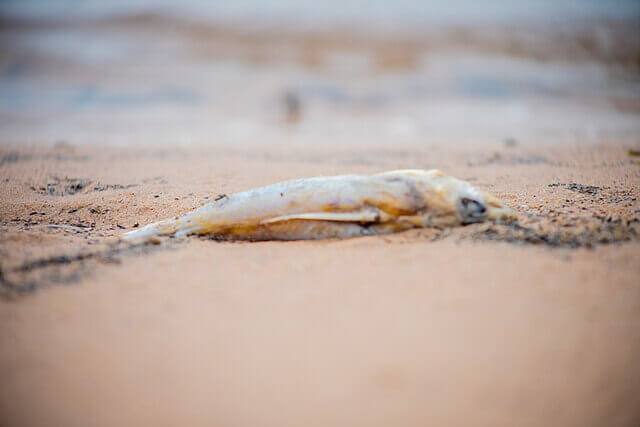
Internal documents and data from within England’s much-criticised environment watchdog reveal an agency struggling to respond adequately to serious pollution events.
The information shows that the Environment Agency (EA) dispatched investigators to only a small proportion of reported incidents last year and often relied on updates from water companies — the very organisations that may have caused the pollution.
An internal EA document issued earlier this year states that all potentially serious pollution incidents should be attended by agency staff. However, in 2024, the EA failed to attend almost a third of nearly 100 water industry incidents later deemed to have posed a serious threat to the environment or to human health.
The data also shows that the EA downgraded the severity of more than 1,000 incidents initially classified as potentially serious — without sending inspectors to assess them in person.
The agency maintains that it “responds” to all incidents and uses multiple methods to assess environmental harm without necessarily attending on site. It insists that it is “careful not to underestimate the seriousness of an incident report.”
However, an EA insider who supplied the data was sharply critical of the agency’s current approach.
“What not attending means is that you are you are basically only dealing with water company evidence. And it’s very rare that their own evidence is very damning,” the insider said.
Among the cases reviewed were an incident where chemicals spilled into a reservoir, killing all the fish, and another in which sewage overflowed into a garden for more than 24 hours — neither of which were attended by EA staff.
Details from the internal reports have been withheld to protect the identity of the whistleblower. However, they reveal an agency frequently slow to respond, often copying water company statements verbatim into its own documentation before downgrading incident severity.
Other records indicate that pollution events were sometimes reported to the EA by water companies hours after the issue had been resolved — by which point much of the evidence had disappeared, making accurate assessment impossible.
Overall, the data suggests that the EA attended just 13% of all reported pollution incidents, whether serious or minor, in 2024.
“It’s virtually impossible to get them to come out,” Ashley Smith a veteran water quality campaigner from the Oxfordshire based campaign group Windrush Against Sewage Pollution (WASP) said.
“(When you call the EA) they go through a scenario where they’ll say ‘are there any dead fish’. And, typically there are not dead fish because often the fish are able to escape.
“The EA then says – we’ll report that to Thames Water – and it will be Thames Water if anyone who gets in touch with you.”
Water quality campaigner Matt Staniek, based in the Lake District, cited multiple cases in which the EA appeared to accept local water companies’ explanations of sewage discharges at face value — claims he later disproved through his own information requests.
“The Environment Agency has not been holding United Utilities accountable,” he says. “And the only way that we get them to properly turn up to pollution incidents and now actually try and do a proper investigation is by going to the media with it, and that should not be the case.”
A spokesperson for United Utilities responded: “We are industry-leading in self-reporting incidents to the Environment Agency.”
As part of the government’s ongoing review of water industry regulation, ministers have pledged to end the practice of water companies self-reporting pollution events. There is widespread consensus that the current system is failing, and proposals are being developed to merge the various regulators overseeing the water sector — including the EA — into a single body.
“The Environment Agency is so hollowed out that it cannot investigate pollution crimes, effectively telling polluters they can act with impunity,” James Wallace, the chief executive of campaign group River Action, told the BBC.
In July, it was revealed that staff shortages had forced the EA to cancel thousands of water quality tests at its main laboratory in Devon.
“We respond to every water pollution incident report we receive,” an Environment Agency spokesperson said.
“To make sure we protect people and the environment, we are careful not to underestimate the seriousness of an incident report when it comes in. Final incident categorisations may change when further information comes to light. This is all part of our standard working practice.”
The agency says it aims to more than double the number of inspections it carries out on water companies over the next year. To achieve this, it is recruiting 500 additional staff and improving its data management systems.
——————————————————————————
At Natural World Fund, we are passionate about restoring habitats in the UK to halt the decline in our wildlife.

